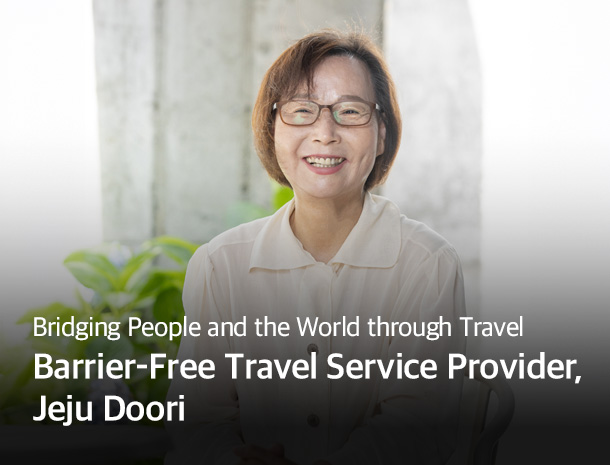Introduction of Companies
- Home
- Jeju Life
- Introduction of Companies
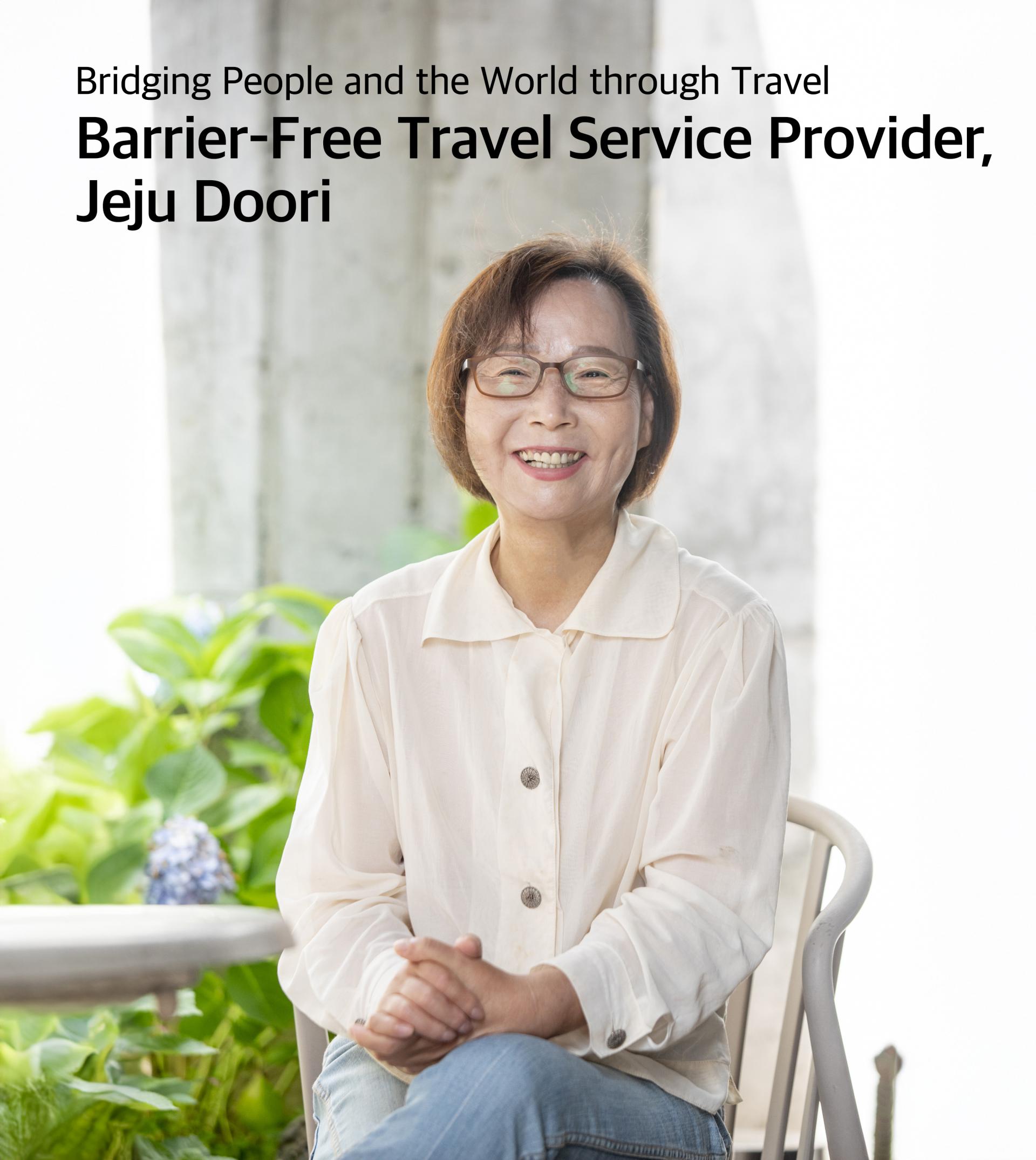
“We aimed to develop tourism for those with limited mobility as a viable business model, not just as a welfare service. Our vision was to create a tourism industry where people with disabilities could independently choose their destinations and activities as consumers. Today, Jeju Doori offers personalized travel planning and services tailored to individual needs. Our goal is to ensure that travel is a right accessible to everyone, fostering a society where we all live together in harmony.”
Lee Eun-sil, CEO of Jeju Doori
|
Tailored Companion Services that Lower the Barriers to Travel |
"Why isn’t there a travel service for people with disabilities?" This simple question led to the creation of Jeju Doori. A group of like-minded individuals came together to address the challenges faced by travelers with disabilities, researching and developing specialized services for those with limited mobility. Since our founding as a social venture in 2014, Jeju Doori has planned over 30,000 trips for travelers with special needs. Our services range from customized travel planning to providing professional companions, booking accommodations, transportation, and more. These services are available to anyone in need of assistance, including people with disabilities. Jeju Doori’s ultimate goal is to create a world where everyone can enjoy the freedom of traveling without restrictions, making the ordinary truly accessible to all.
Q. What are the main projects and services led by Jeju Doori?
As a company specializing in barrier-free travel services, we design customized travel programs. "Barrier-free travel" refers to tourism that is accessible to everyone, including people with disabilities, the elderly, and pregnant women. We recommend travel destinations based on the traveler’s characteristics and needs, considering factors including transportation routes, accommodation, and budget. Additionally, we offer services such as travel helpers (companions), portable ramps, wheelchairs, and specially equipped vehicles.
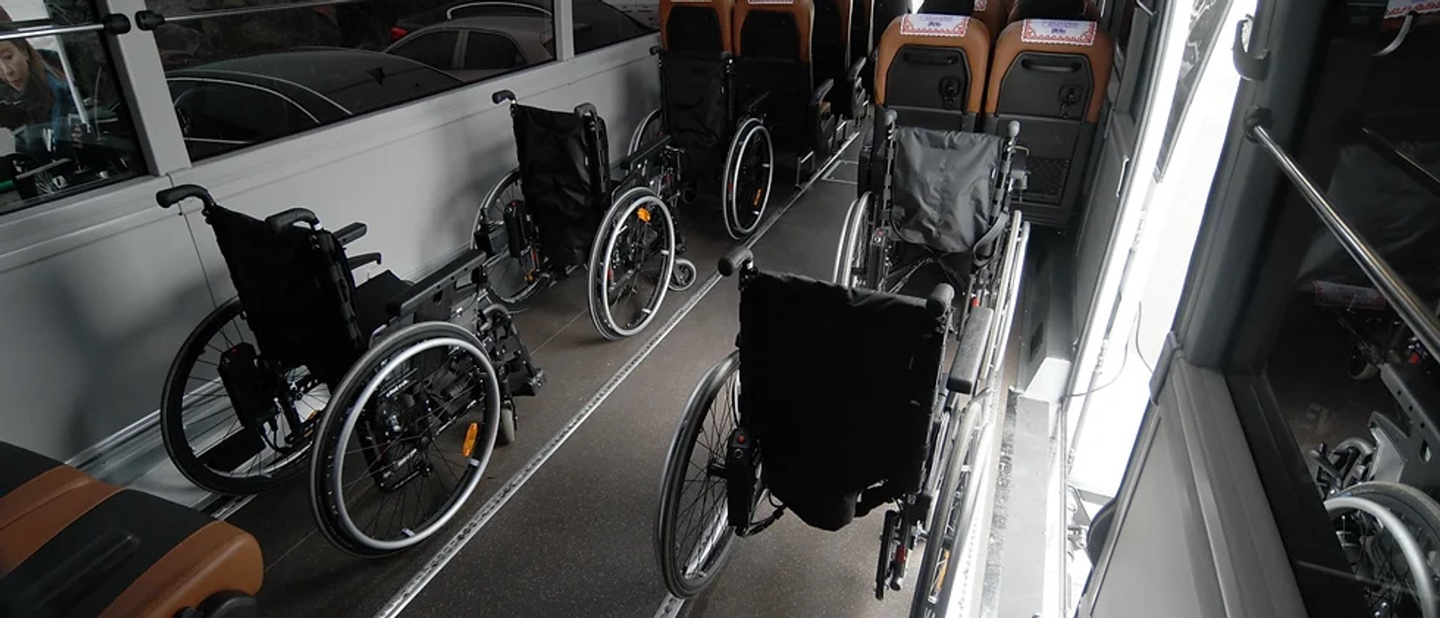
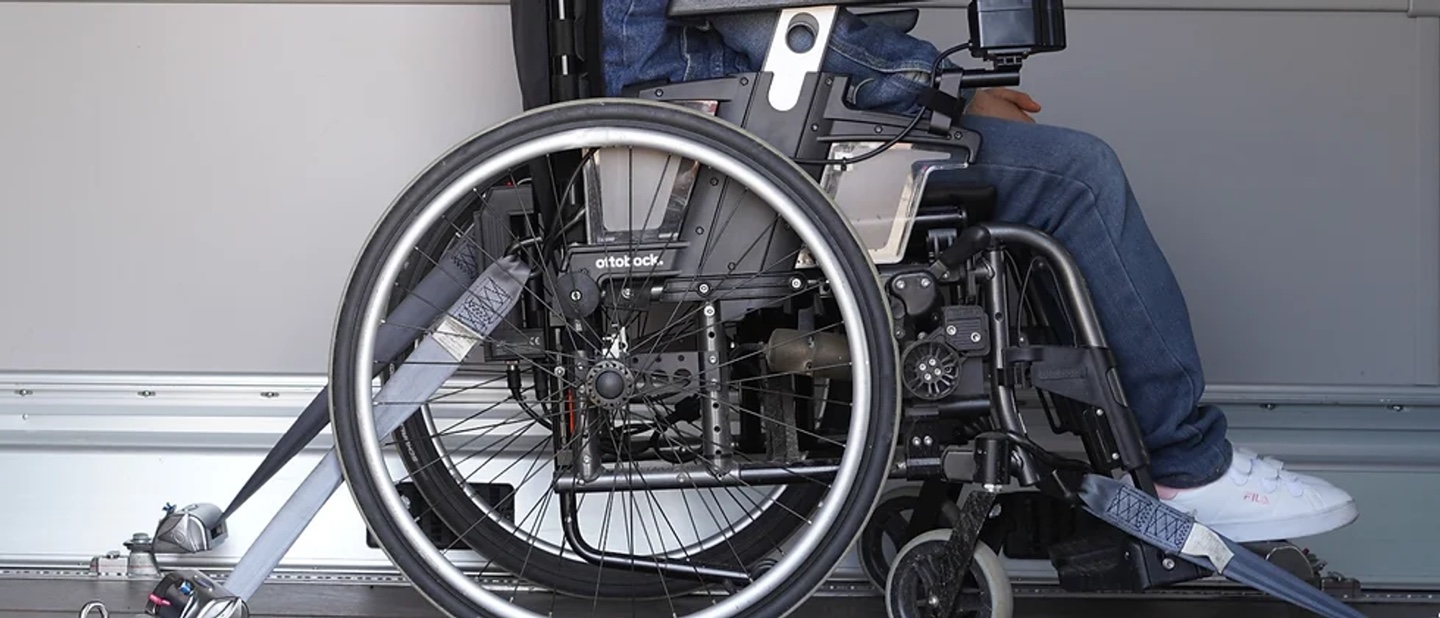
Q. Could you explain the overall travel planning process?
We carefully assess the customer’s desired destination and specific needs through consultations to propose a tailored travel program. For example, we might recommend a tactile-focused trip for a customer with visual impairments or a trip that fosters independence and social skills for someone with developmental disabilities. For customers with hearing impairments, we provide consultants who know sign language. We also book accessible flights, vehicles, and accommodations for those using mobility aids like wheelchairs. We manage the entire itinerary, adjusting schedules in response to unexpected changes in weather or other factors to ensure a smooth trip.
Q. What is the most important factor in your travel planning?
Accessibility. For travelers with limited mobility, decisions on where to go are often based on practical factors like wheelchair accessibility, whether service animals are allowed, and the availability of accessible restrooms, rather than scenic hotels or popular restaurants. We thoroughly inspect the height of thresholds and the width of entrances to ensure wheelchair accessibility, and we carefully check details like the distance between the bed and the wall and the length of the shower hose in accommodations. The level of detail and precision in our planning directly impacts our clients' comfort, so there’s no room for carelessness.
|
Building Infrastructure for Better Barrier-Free Travel |
Q. In addition to providing travel helper services, you’ve also trained them.
Travel helpers are specialized professionals who assist travelers with mobility challenges. You can think of them as caregivers in the tourism industry. They typically accompany clients throughout their trips, helping with transportation, meals, and handling any emergencies that arise, while also providing emotional support. In 2022, Jeju Doori signed an agreement with the Jeju Tourism Organization and the Korea Labor and Employment Service to establish a training program for travel helpers. This initiative was part of a job creation effort for older adults, specifically targeting unemployed individuals aged 50 to 69. Those who completed the training were also connected with employment opportunities. This helped create jobs and contributed to the promotion of barrier-free tourism, achieving a dual benefit. The training covered theories such as understanding different types of disabilities, effective communication methods, and etiquette for assisting travelers with disabilities, along with practical fieldwork where participants traveled with disabled tourists.
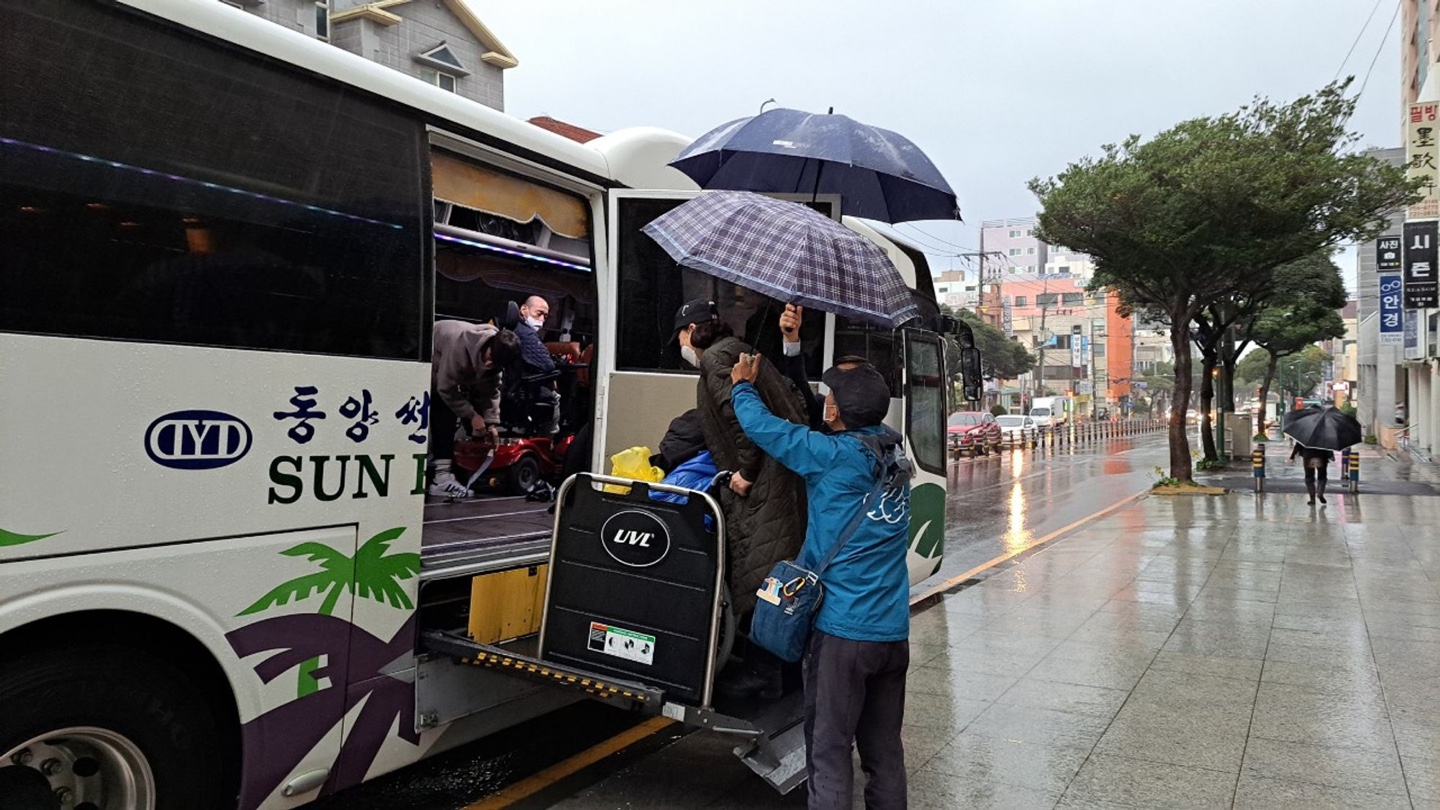
Q. You’ve also worked with various local organizations to develop services for travelers with limited mobility.
In 2021, we partnered with Jeju Olle to map wheelchair-accessible routes and develop barrier-free travel content. Additionally, Jeju City developed Korea’s first wheelchair navigation app, "Wheel Navi," and Jeju Doori provides devices for rental. This app can be used at over 30 tourist sites in Jeju, including Jeju Stone Park and Cheonjiyeon Waterfall. Once attached to a wheelchair and synced with the app, it offers navigation and information about ramps, stairs, restrooms, and other facilities along the route.
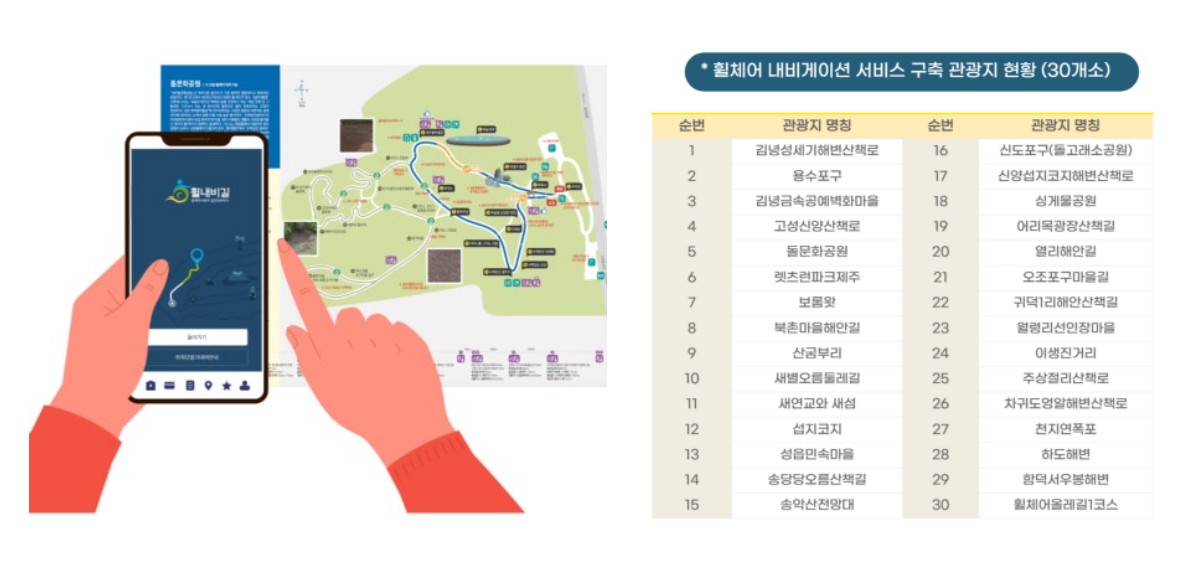
휠체어 내비게이션 앱 '휠내비' 도내 서비스 구축 관광지 현황
|
Sharing Life through Travel |
Q. Unlike in other regions, Jeju offers barrier-free travel programs at famous tourist spots and markets, museums, and Olle Trails. How do you select locations and develop courses?
We divide the island into east, west, south, and north regions, identifying suitable locations and conducting on-site surveys to plan the travel routes. We check for obstacle-free paths, nearby accessible restrooms, and create detailed maps. Regular follow-ups ensure that new obstacles haven’t appeared or paths haven’t changed. We also offer seasonal programs. For example, in spring, we guide visitors through parks and Olle Trails with flat paths and ramps, while in summer, we introduce routes that allow exploring beaches using aquatic wheelchairs.
Q. Can you share a memorable travel story?
We once co-organized a Chuseok holiday trip with the NGO Share Sarangbat. The trip included 15 families, all with members who had severe illnesses or were terminally ill. Due to the large number of participants, we needed many travel helpers, and despite it being a holiday, 12 helpers joined us. I remember designing the travel itinerary based entirely on the needs of our clients. One participant, who was confined to a bed wheelchair, was so happy during the trip that he waved his arms and danced. That moment is still vivid in my mind, and it continues to be a source of motivation for me to keep doing this work.
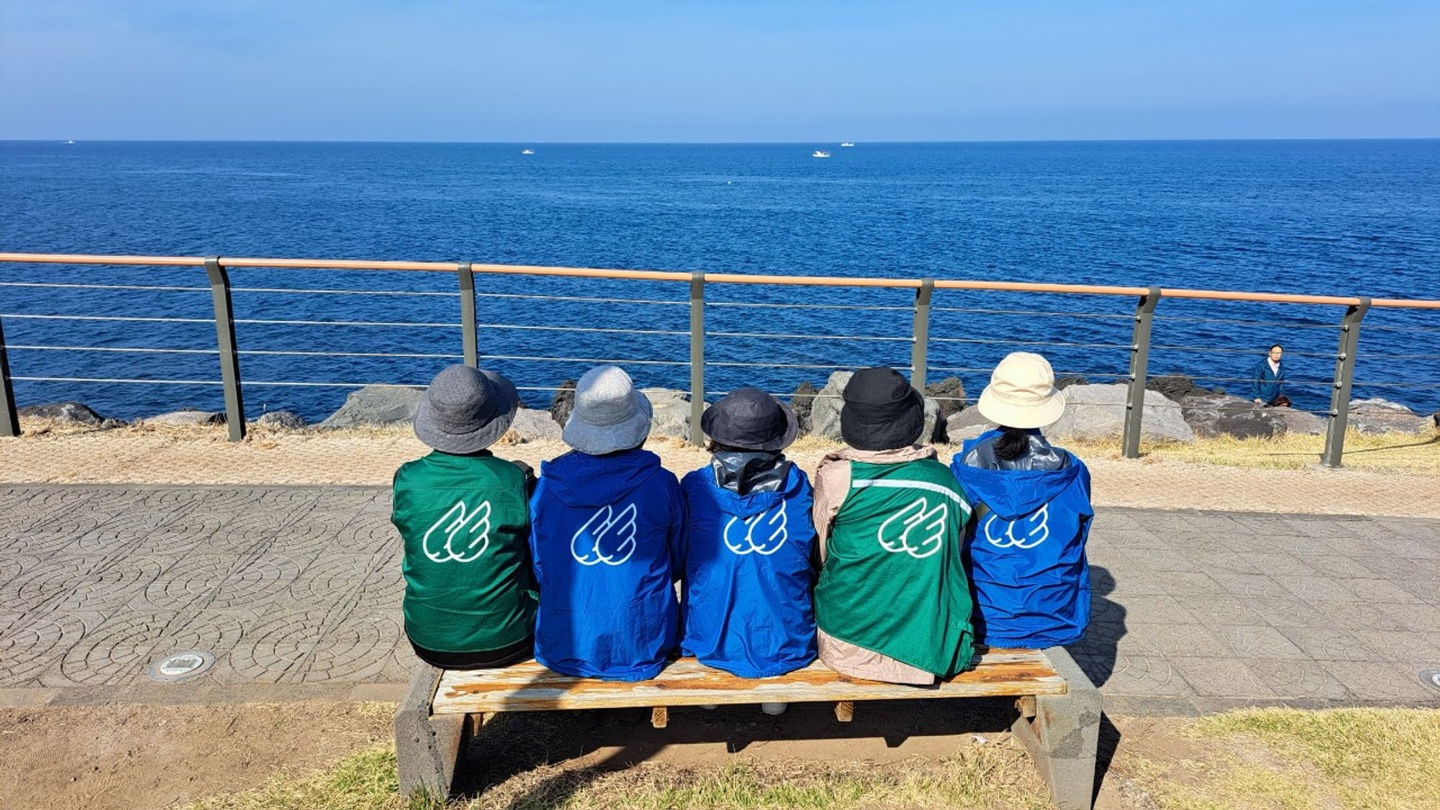
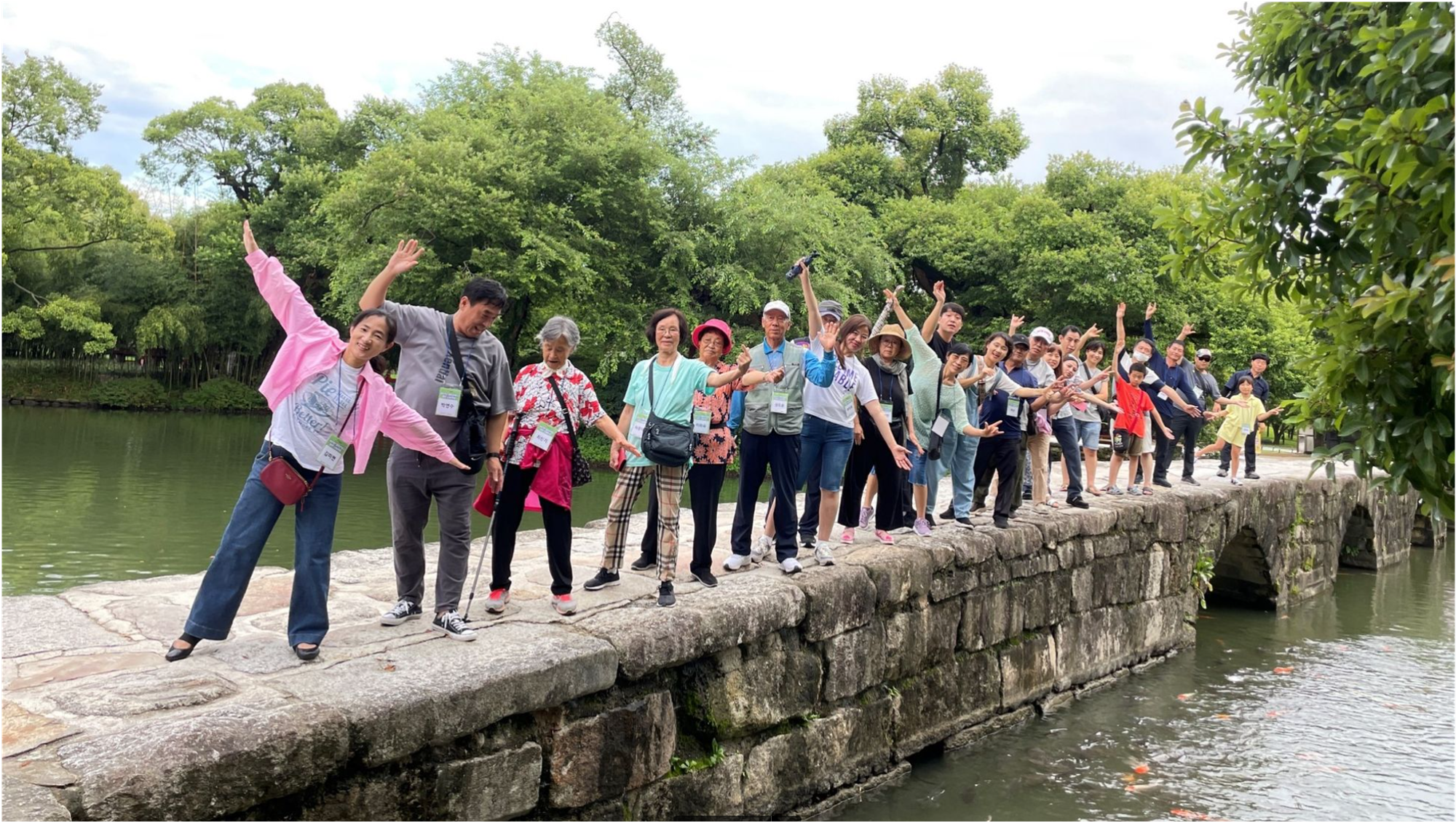
|
Gaining Courage and Exploring the World through Travel |
Q. You must have faced many challenges along the way. As a barrier-free travel service provider, what improvements would you like to see?
Given the nature of our business, we are often viewed more as a social welfare or volunteer organization than a professional service provider. While we do aim to be a socially responsible company, our primary focus is on delivering professional barrier-free travel services. To achieve this, we are working on improving our internal systems and training specialized professionals. We hope that as we continue to build a solid infrastructure, our services will eventually be recognized as a successful business model. This, in turn, could lead to the development of policies and systems that support barrier-free travel.
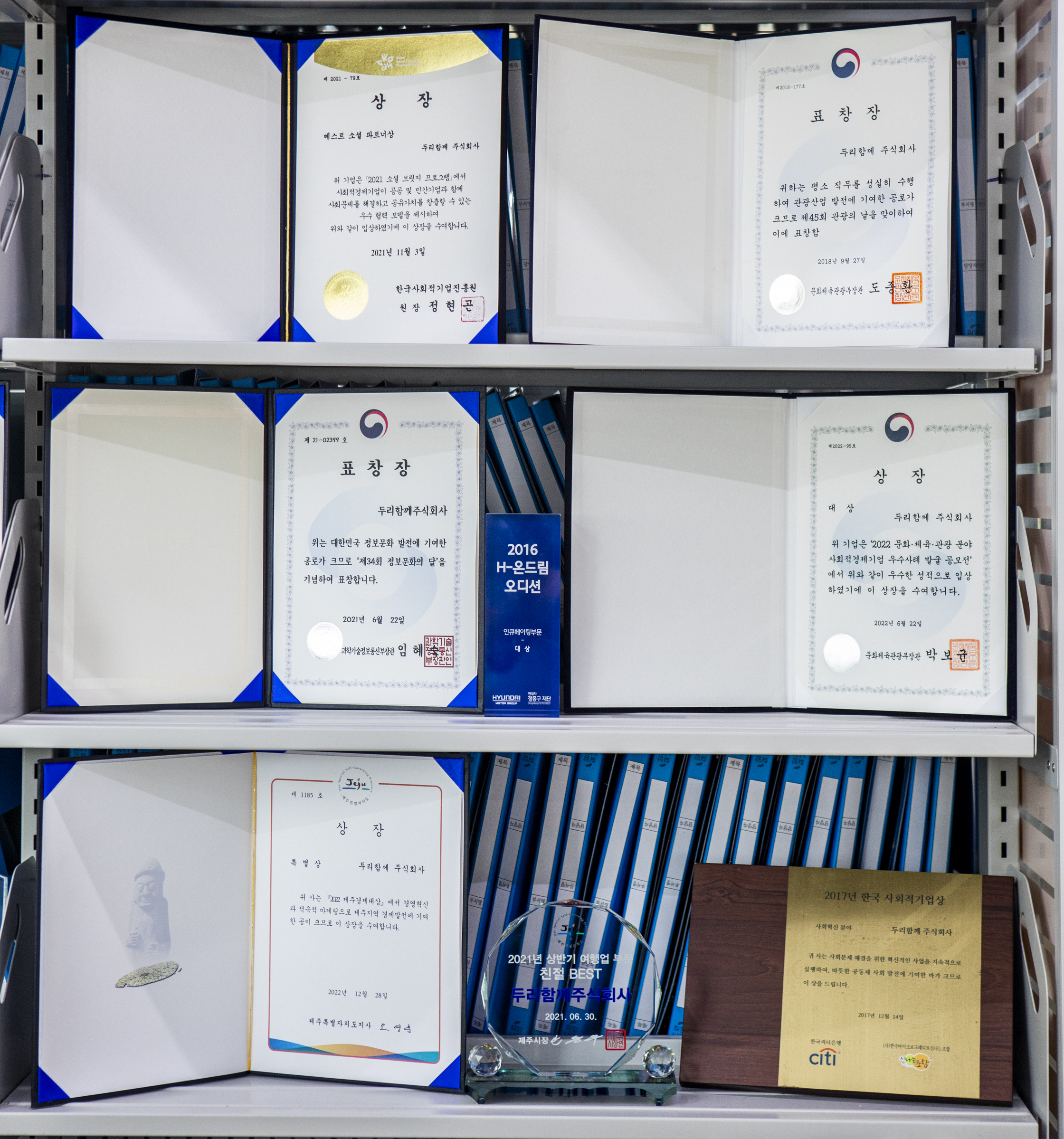
Q. Lastly, could you share Jeju Doori's short-term and long-term plans and goals?
When we started Jeju Doori, we publicly committed to creating barrier-free travel experiences designed by and for people with disabilities. But honestly, we had doubts about whether this was even possible. (laughs) In the beginning, there was no existing infrastructure, so we had to create manuals and processes from scratch, which was quite challenging, especially with unexpected hurdles like the pandemic. Still, we’ve persevered, and now we're entering our tenth year. Our next step is to ensure that anyone who chooses Jeju Doori can travel anywhere with confidence. For those with limited mobility, travel isn’t just about relaxation—it’s often their first step into the broader world. We want to help them become familiar with situations like navigating rocky paths at volcanic cones or asking for assistance when needed. I believe travel can be a powerful tool in making these experiences possible.
